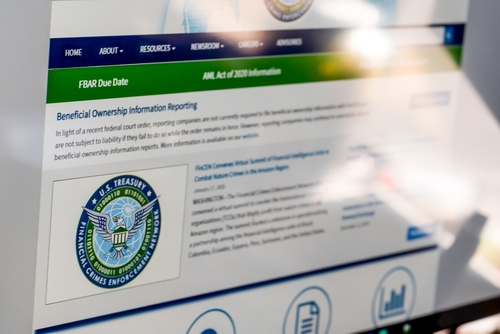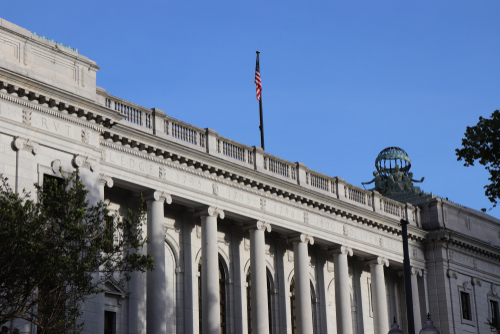
Dear Clients and Friends,
Below are highlights of key regulatory updates, proposed legislation, and enforcement events in the field of international trade regulation over the first quarter of 2025, and touches on developments in U.S. tariffs over recent weeks. Developments in trade controls may affect compliance requirements for companies operating in Israel and abroad.
Regulatory Updates | Proposed Regulation | Enforcement Updates
REGULATORY UPDATES
US Announces Additional Regulatory Framework Limiting Export of Advanced Artificial Intelligence Technology
On January 13, 2025, the US Department of Commerce’s Bureau of Industry and Security (BIS) announced a new drastic regulatory framework to control advanced computing chips and advanced US AI models aimed at “safeguard[ing] the most advanced AI technology and help ensure it stays out of the hands of [US]… foreign adversaries”. The framework, which will be incorporated into the US Export Administration Regulations (EAR), has three primary features:
- New Controls on Advanced Computing Chips: The new regulations imposes a global license requirement for the export of certain advanced computing chips to many countries, with certain limited license exceptions for export to some US ally countries who have implemented measures to prevent the diversion of advanced technologies (not including Israel), for supply chains, and for low volume uses. The rule creates country allocation levels of advanced computing chips, such that once a country meets its quota, there will be a presumption of denial for the authorization of export of advanced computing chips to those countries, with some exceptions.
The restrictions also update the existing Data Center Validated End User (VEU) Program to include new Universal VEUs (UVEUs) and National VEUs (NVEUs) to streamline data center construction globally, excluding US arms-embargoed countries. - Controls on Advanced AI Models: The new rule imposes controls on the export of advanced AI models, initially applicable to the weights of models trained with 10^26 computational operations or more, with exceptions for deployments by US or certain allied entities and open-weight models.
- Security Conditions: The new rule includes requirements regarding the storage of advanced models and to prevent the risk of diversion for advanced computing chips.
US Institutes Controls on Connected Vehicles Tied to China and Russia
On January 14, 2025, the US Department of Commerce’s Bureau of Industry and Security (BIS) announced a final rule prohibiting the sale or import of certain connected vehicles and components with ties to China or Russia. The rule targets hardware and software integrated into vehicles which allow for external connectivity and autonomous driving capabilities that could expose sensitive data or allow remote manipulation of vehicles by foreign adversaries.
US Tightens Restrictions on Foundry Due Diligence and Prevent Diversion to China
On January 15, 2025, the US Department of Commerce’s Bureau of Industry and Security (BIS) announced further restrictions aimed at tightening export controls on advanced computing semiconductors to limit China’s ability to obtain advanced computing semiconductors. The new restrictions place additional due diligence measures and tighten license requirements for foundries and packaging companies exporting advanced chips, absent certain exceptions. In parallel, BIS added 11 Chinese entities to the Entity List, citing their roles in developing advanced Artificial intelligence and technology for advanced node fabrication facilities in China.
Additional Russia-Related Sanctions
In January 2025, the US Department of State and the US Department of the Treasury imposed two sets of sanctions focused on: (a) individuals and entities involved in Russia’s military-industrial base and sanctions evasion and (b) individuals and entities involved in Russia’s energy sector, including Russian oil giants Gazprom Neft and Surgutneftegas, further intensifying restrictions on Russia’s energy exports. Some allied countries have taken similar measures.
The entities sanctioned by the US for evasion were mainly from China, as well as individuals and entities from Malaysia, Turkiye, and the UAE, responsible for exporting Common High Priority List (CHPL) items to Russia in evasion of US sanctions. Foreign Financial institutions continued to be targeted as sanctions evasion enablers,and the US Department of Treasury took additional steps to allow for imposing secondary sanctions on financial institutions that enable evasion.
Similarly, on February 16, 2025, the US, UK, and Australia Foreign Commonwealth and Development Office jointly designated Zservers, a Russian secure hosting server provider, along with two of its staff members. The UK additionally designated several other staff members and Zservers’ UK front company, Xhost. Zservers provides server hosting services that have been utilized in Russian-based cyber-criminal activities. The US designation was implemented pursuant to Executive Order 13694, which targets malicious cyber activities.
On February 24, 2025, the European Union adopted its 16th package of sanctions against Russia, Belarus, and Russian-occupied areas of Ukraine. The comprehensive package sanctions an additional 48 individuals and 35 entities; placing restrictions on Russia’s military and energy industries, as well as individuals responsible for sanctions evasion. The sanctions package targeted a wide variety of individuals, including Russian propagandists and third-country actors supporting the Russian war effort. The EU also sanctioned Russian-based crypto-currency exchange, Garantex, involved in sanctioned financial transactions. EU Russia sanctions now apply to over 2400 individuals and entities.
US Revokes Sanctions Program against Israel
On January 20, 2025, the White House announced the revocation of a sanctions program directed at “…Persons Undermining Peace, Security, and Stability in the West Bank”. The sanctions framework had presented a new mechanism through which the US could place sanctions and secondary sanctions in the region. As a result of the program’s cancellation, several Israeli individuals and organizations have been removed from the US Specially Designated Nationals (SDN) list.
Israeli Freight Forwarder Sentenced to Two Years in Prison for Violating Export Restrictions Imposed on Russia
On February 21, 2025 Gal Haimovich, an Israeli freight forwarder was sentenced to 24 months in prison and three years of supervised release for conspiracy to illegally ship aircraft parts and avionics from U.S. manufacturers and suppliers to Russia, including for the benefit of sanctioned Russian airline companies. In addition, Haimovich paid the full forfeiture amount of $2,024,435.44. Haimovich owned an international freight forwarding company that was an affiliate in a group of companies that did business in various countries, including the United States and Israel. Haimovich admitted that his scheme involved deceiving U.S. companies about the true destination of the goods at issue, and that the defendant and others attempted to conceal the scheme by submitting false information in export documents filed with the U.S. government. The violations occurred over 2022 and 2023.
US Adds 80 Entities to Entity List to Restrict China’s AI and Advanced Computing Capabilities
On March 25, 2025, the US Department of Commerce’s Bureau of Industry and Security (BIS) announced the addition of some 80 entities to the Entity List due to their roles in providing China access to certain advanced technologies, in particular regarding Artificial Intelligence and Advanced Computing capabilities. Of the 80 entities, many were added due to their role in supporting Chinese military and nuclear goals. However, 12 were added for their roles in developing advanced AI, supercomputers, and high-performance AI chips for Chinese end-users, and two for selling to Chinese entities on the BIS Entity List.
US Sanctions Entities Utilizing Virtual Assets for Sanction Evasion
On March 25, 2025, the Department of the Treasury’s Office of Foreign Assets Control (OFAC) announced sanctions against several entities and individuals operating in the Russian financial services and technology sector, including individuals involved in developing or offering services in virtual assets that enabled US sanction evasion. The sanctions targeted companies using blockchain-based services or other virtual currency payments in the Russian financial sector, enabling potential sanctions evasion. The sanctions mark a response to the Russian strategy of exploiting alternative payment mechanisms, in particular cryptocurrency and virtual assets, to thwart US sanctions.
US Tariffs- Dynamic Updates
As part of the new administration’s America First Trade Policy, the US has imposed a series of new tariffs on US foreign imports.
What follows is a brief timeline of some US tariffs imposed under the new administration:
- On February 1, 2025, the White House announced three executive orders (EOs) on imports from Canada, China, and Mexico.
- On February 10, 2025, the US adjusted existing steel and aluminum tariffs.
- On February 25, 2025, and March 1, 2025, the US announced Section 232 investigations on copper and timber to determine the effect of their imports on US national security. The results of the investigations will be used for actions to address the national security risks associated with their import dependency, including possible tariffs.
- On March 24, 2025, the US announced tariffs imposed on countries importing Venezuelan oil.
- On April 2, 2025, the White House announced an executive order establishing a series of reciprocal tariffs, which included a 10% tariff baseline rate on imports from all countries, and individualized reciprocal higher tariffs based on a country’s specific trade policy in the context of US exports. However, on April 10, the US then suspended these individualized tariffs for a 90-day review period (July 9, 2025), leaving in place the 10% baseline, as well as the individualized tariffs on China. US Customs and Border Protection guidance regarding the tariffs can be found here.
- On April 15, 2025, the US announced Section 232 investigations on certain critical minerals to determine the effect of their imports on US national security. The results of the investigations will be used for actions to address the national security risks associated with their import dependency, including possible tariffs.
US tariffs have threatened and triggered retaliatory tariff countermeasures and policy changes worldwide, such that companies may be affected by new measures in foreign jurisdictions.
It should be noted that specific industries are at higher risk for tariffs, such as certain metals and critical minerals, oil, automobiles, and certain advanced technology, such as integrated circuits, semiconductors, and semiconductor manufacturing equipment. Certain exceptions apply, such as tariff-free products under certain preexisting trade agreements (ex. US-Mexica-Canada Agreement), or other specific exceptions under each tariff program.
For tariff risk management, exporters should review their products against the regulations, as well as their supply chains, consider any necessary contract adjustments, and monitor for additional updates.
US Anti-Boycott Compliance
In continuation of our previous updates regarding US anti-boycott compliance in the context of a rise in boycotts of Israeli businesses, the US has added some 30 new entities to its Boycott Request List, a list of parties identified as having made potential reportable boycott requests. Under Section 760 of the US Export Administration Regulations (EAR), US companies are prohibited from certain actions in “furtherance or support of a boycott maintained by a foreign country against a country friendly to the US”, primarily applicable to unsanctioned foreign boycotts against Israel. The prohibition includes not only the refusal to do business with a boycotted country but also disallows providing information about an entity’s business relationships with boycotted countries and certain related certifications.
UK Updates Strategic Export Control List with New Controls and Definitions
On March 11, 2025, the UK government announced updates to its Strategic Export Control List, incorporating changes from multilateral export control regimes such as the Wassenaar Arrangement and the Nuclear Suppliers Group. The amendments include modifications to control entries for military and dual-use items, such as ML10 for aircraft and 1C002 for metal alloys, as well as new definitions for terms like ‘satellite’ and ‘space vehicle.’ The updates reflect a growing trend of unilateral trade controls. Companies should consider the nuances and variations in domestic export controls that may vary between jurisdictions.
EU Launches Sanctions Helpdesk to Assist with Compliance
On March 24, 2025, the European Commission launched the EU Sanctions Helpdesk, a new resource designed to provide guidance and support to businesses and individuals on compliance with EU sanctions. This initiative aims to enhance understanding and implementation of sanctions measures, particularly in complex areas such as trade restrictions and asset freezes. The helpdesk offers access to expert advice and up-to-date information focused on SMEs, helping clients navigate the intricacies of sanctions compliance and reduce the risk of inadvertent violations, especially for those operating across multiple EU jurisdictions.
EU Publishes Report on Dual-Use Export Controls
The European Commission released a report on trends in dual-use exports from EU member states, noting a significant increase in export volumes. The report provides extensive data on licensing, enabling better implementation of export controls and understanding risks associated with sensitive goods. Following the report, five Technical Expert Groups (TEGs) were established under the Dual-Use Coordination Group (DUCG) in coordination with the Commission. These include: the Surveillance Technology Expert Group (STEG) overseeing cyber-surveillance exports; the Emerging Technology Expert Group (ETEG) focusing on advanced technologies like quantum; the Enforcement Coordination Mechanism (ECM) for information sharing; Data Collection and Transparency TEG (DCT-TEG); and Capacity Building TEG (CB-TEG) supporting training and knowledge transfer. These efforts reflect a heightened EU focus on dual-use export controls. Israel’s Dual-Use Export Control Division published details on the report and the establishment of the TEGs.
Israel Implements Updates to Wassenaar Arrangement Dual-Use List
In December 2024, the Wassenaar Arrangement’s annual plenary updated its dual-use equipment control list. Effective January 2025, Israel’s Defense Export Controls Agency (DECA) implemented the updated list under the Defense Export Control Order (Controlled Dual-Use Equipment), 2008. The updated list is available on DECA’s website. The Ministry of Economy and Industry will adopt these changes on October 1, 2025, with further guidance to be published throughout 2025.
DECA Issues Guidance Clarifying Identifying Controlling Shareholders
On January 9, 2025, Israel’s Defense Export Controls Agency (DECA) published guidance for exporters, emphasizing that applications for registration in the defense export registry must be submitted via the personal portal with a cover letter identifying the company’s controlling shareholder, as defined in Section 2 (“Control” and “Means of Control”) of the Defense Export Control Law.
Israeli DECA Publishes Reminder about Expedited Application Procedure for Exceptional Cases
On January 23, 2025, Israel’s Defense Export Controls Agency (DECA) published a reminder that, in exceptional cases requiring urgent processing of applications (registration, marketing licenses, or export licenses), companies may request an “expedited procedure.” Requests must include a letter signed by the company’s CEO with detailed justifications and be submitted only after the complete application is filed with DECA.
Israel Extends Iraq Exemption from Trading with the Enemy Ordinance
The Trading with the Enemy Ordinance prohibits trade with designated enemy states (Iran, Iraq, Syria, Lebanon). On March 30, 2025, Israel’s Minister of Finance extended the existing general permit exempting Iraq from this designation until March 31, 2026 (published in Official Gazette No. 13332).
China’s Enacts Reform to its Dual-Use Export Control
In January 2025, China implemented a reform to its dual-use export control regime. The reform updated the dual-use items list to include advanced technologies and introduced a temporary control list, valid for two years. Israel’s Ministry of Economy and Industry published details on the reform’s entry into force, alongside guidance on licensing and enforcement processes and tips for Israeli industry to navigate the changes.
PROPOSED REGULATIONS
US BIS Issues Advance Notice of Proposed Rulemaking for Regulation Concerning the Information and Communication Technology and Services (ICTS) Supply Chain for Unmanned Aircraft Systems (UAS)
On January 3, 2025, the US Department of Commerce’s Bureau of Industry and Security (BIS) issued an Advance Notice of Proposed Rulemaking (ANPRM) to address national security risks in the unmanned aircraft systems (UAS) supply chain, focusing on information and communications technology and services (ICTS) linked to foreign adversaries, particularly China and Russia. The ANPRM focuses on regulating UAS components integral to data collection and connectivity, which pose risks to critical infrastructure and sensitive US data. BIS aims to develop comprehensive regulations covering drones, ground control stations, and communication links, drawing parallels to its proposed rules for connected vehicles. The proposed rule was issued under the Biden administration but continues the Trump administration’s 2019 Executive Order focused on Securing the Information and Communications Technology and Services Supply Chain and aligns with the Trump administration’s America First Trade Policy, which promotes the possibility of expanding control over ICTS transactions to various connected products.
EU Advances REARM Framework to Bolster Defense Exports
In March 2025, the European Union published a white paper providing a framework for the Rapid Enhancement of Armaments Manufacturing in Europe (REARM) plan. This initiative aims to enhance the EU’s defense capabilities by streamlining export controls and facilitating the intra-EU transfer of defense-related items. The framework seeks to harmonize licensing procedures and reduce bureaucratic hurdles, thereby strengthening the EU’s strategic autonomy in defense production.
Israeli DECA Prepares for Repeal of Encryption Control Order
As mentioned in our previous client update, On October 14, 2024, the Israeli Ministry of Justice published a draft law repealing the Encryption Order (or the Order Governing the Control of Commodities and Services (Engagement in Encryption Items)-1974). If canceled, regulation over Information Security exports will be divided between two regulators- the Defense Export Control Agency (DECA) for exporters to defense end users and the Ministry of Economy and Industry for civilian end users. In preparation for the repeal of the Control of Commodities and Services Order (Engagement in Encryption Means), 1974, DECA announced a conference for affected companies to address significant changes resulting from the repeal, provide technical explanations of Chapter 5, Part 2 of the Wassenaar Arrangement’s dual-use goods and technologies list, and outline required control processes for regulated products. The conference is scheduled to take place on May 7, 2025.
Enforcement Updates
S BIS and OFAC Impose Penalties on Haas Automation for Export Violations
On January 17, 2025, the Bureau of Industry and Security (BIS) and the Office of Foreign Assets Control (OFAC) announced that Haas Automation, Inc. agreed to pay over $2.5 million in combined civil penalties for violations of US export controls and sanctions laws. The violations involved illegal shipments of Computer Numerical Control (CNC) machine parts, including those designated as EAR99, to entities on the Entity List in Russia and China, designated for supporting defense sectors. BIS imposed a $1.5 million administrative penalty and required ongoing audits and reporting, while OFAC settled for $1,044,781 for sanctions violations related to Russia and Ukraine.
UK OFSI Imposes Penalty on Law Firm for Sanctions Breaches
On March 20, 2025, the UK’s Office of Financial Sanctions Implementation (OFSI) announced a monetary penalty of £465,000 against Herbert Smith Freehills CIS LLP (HSF Moscow), a subsidiary of an English law firm, for breaches of UK financial sanctions related to Russia’s invasion of Ukraine. The penalty was imposed for six payments that violated the sanctions regime.
Israeli DECA Publishes Exporter Information Booklet
In the beginning of 2025, Israel’s Defense Export Controls Agency (DECA) released an informational booklet first disseminated at its November 2024 conference. The booklet includes details on violations of the Defense Export Control Law with examples and lessons learned to guide future compliance. The booklet clarifies key issues, such as the activities of Israelis in foreign companies, reporting requirements for changes in controlling shareholders, and model definitions. DECA reported that in 2024, 68 investigations were opened based on indications of violations, with 13 resulting in enforcement actions.
US BIS Export Enforcement Publishes Annual Year-in-Review
On January 2, 2025, the US Department of Commerce’s Bureau of Industry and Security (BIS) released its 2024 Export Enforcement Year in Review. Of note, BIS expanded its Disruptive Technology Strike Force, resulting in 26 criminal cases since its inception, targeting illicit transfers of sensitive technologies to China, Russia, Iran, and North Korea. BIS also advanced its anti-boycott enforcement, with over 40 entities removed from the Boycott Requester List after ceasing boycott-related requests.
UK OFSI Publishes its Year in Review
On March 21, 2025, the UK’s Office of Financial Sanctions Implementation (OFSI) issued an annual year in review, 2023-24, indicating a record number of investigations and wide enforcement. The review reflects the UK’s commitment to increased enforcement of UK sanctions.
This client update highlights certain developments in the field of international trade that can assist in meeting compliance requirements. It does not review all the updates that took effect in the first quarter of 2025 and is not intended to provide a comprehensive summary. This client update provides general information and may not be relied upon in any particular situation without additional legal advice.










